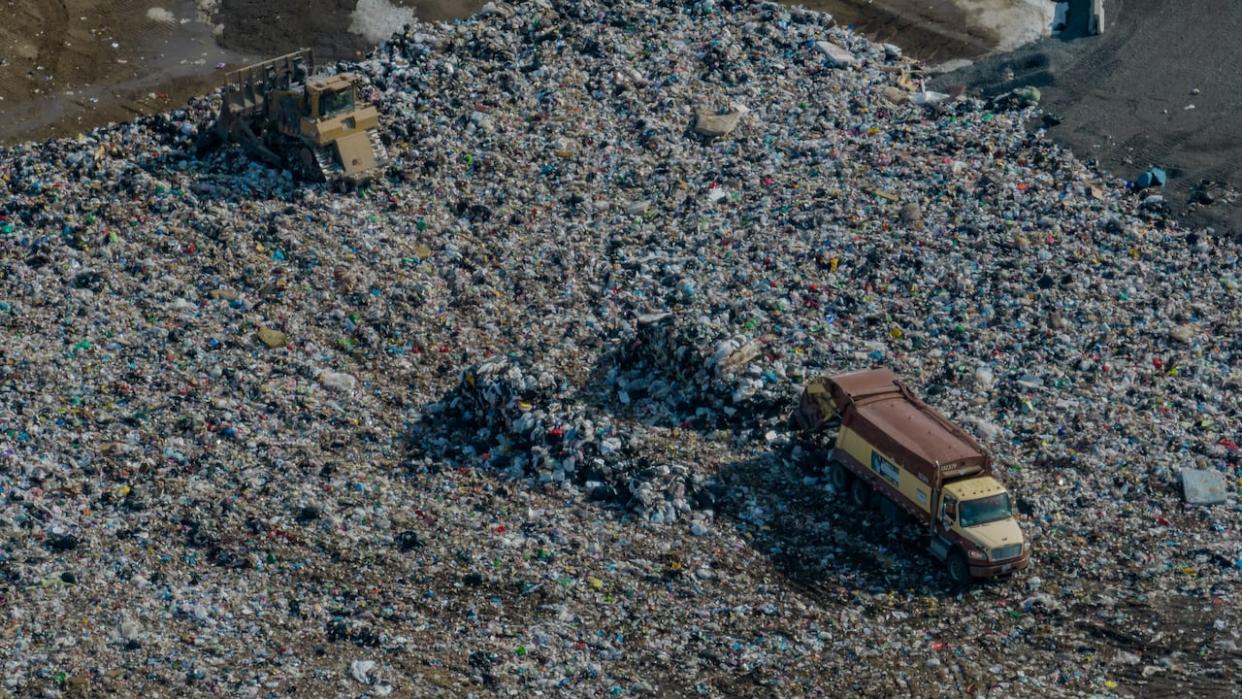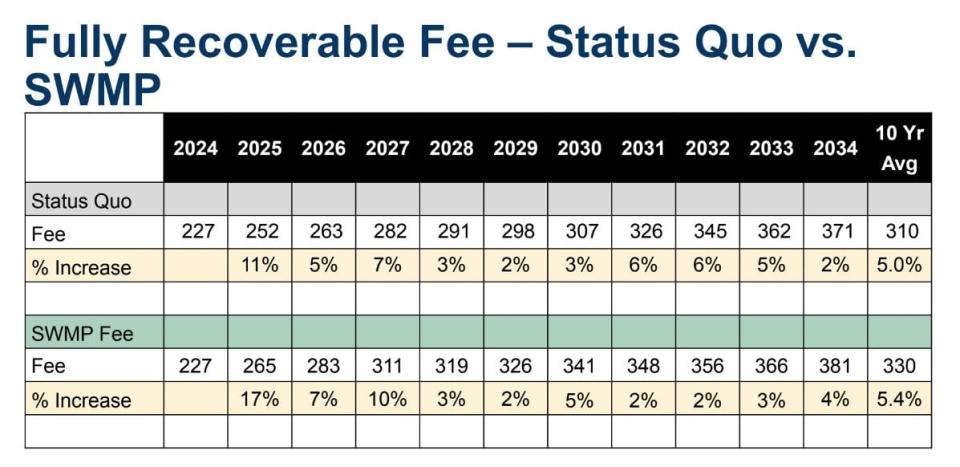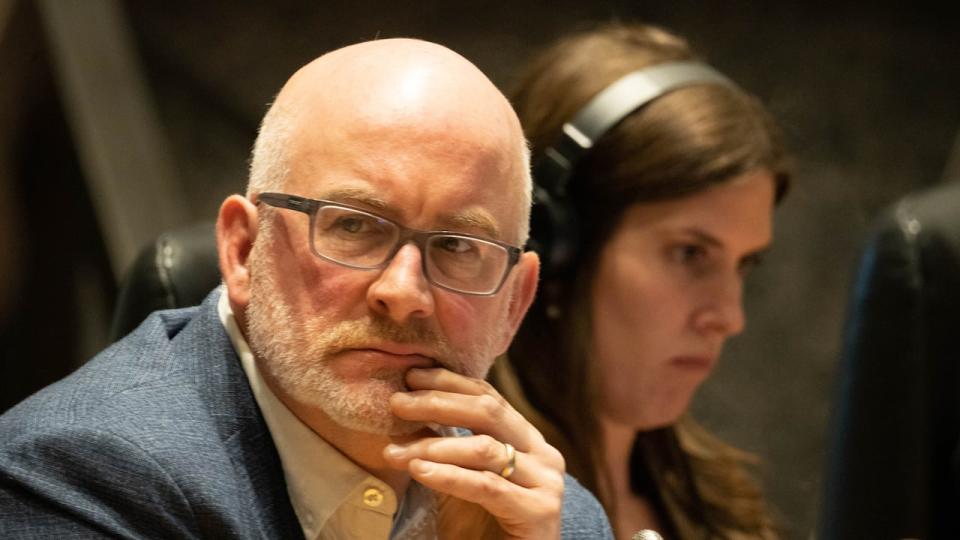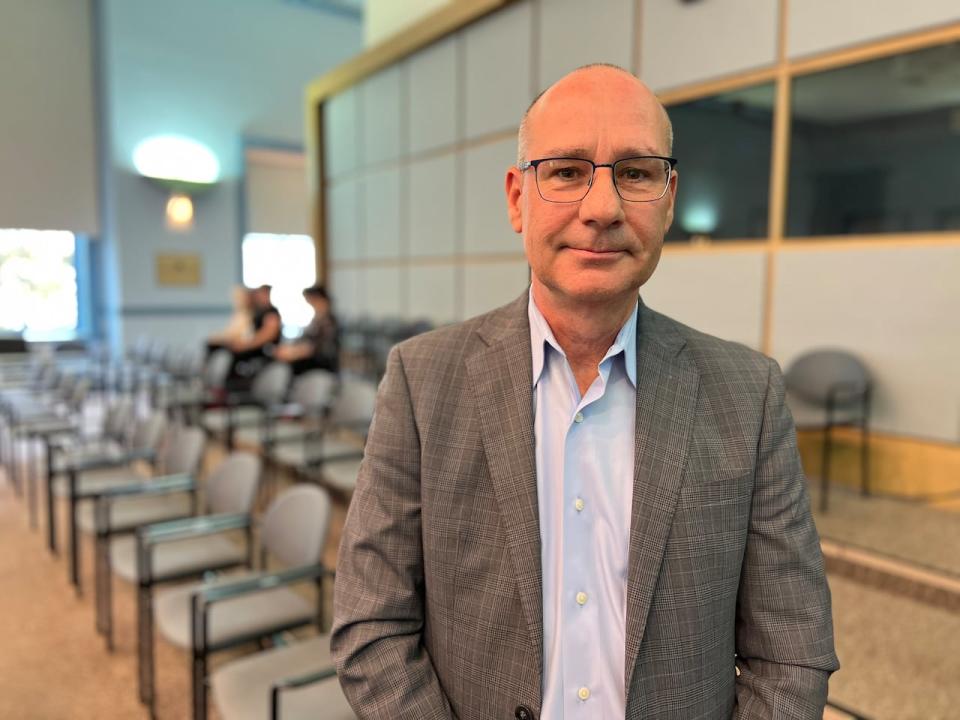How we pay for garbage service in Ottawa could soon change

Ottawa's latest plans for extending the life of its Trail Road Landfill include a shift to a flat fee for garbage services, which will also help replenish empty reserve funds.
The rainy day fund, which has consistently been in the red for over a decade, currently sits at a $25-million deficit. The situation spells trouble to deputy treasurer Isabelle Jasmin, with the cost of building a new landfill by 2036 — when it will fill up if the city does nothing — pegged at $536 million.
The city has been gradually increasing fees to slowly build its reserves, she told councillors at a technical briefing on Friday.
"Reserves are critical for financial sustainability, to smooth fluctuations in funding needs, to ensure predictability for ratepayers and to put money aside for future investments," she explained.
Staff have spent the past five years working on a plan to extend the life of the Trail Road Landfill by an additional 14 years, creating some room to find a longer-term solution.
Councillors will get a chance to debate the plan this month. It includes not only the new three-item limit on curbside pickup and mandatory organics collection at condos and apartments, but also a raft of programs from further relying on private landfills to setting up "repair cafés" — places where residents can get broken items fixed instead of tossing them in the trash.
Doing nothing isn't really a viable alternative, argues Jasmin.
"The status-quo scenario would not only decimate the solid waste reserves, it would place it in a substantial deficit position that would take many years to recover from and impact the city's overall liquidity and possibly our credit rating," she said.
That's especially true given that the city is set to lose $17 million in revenue per year, once the province shifts the responsibility for recycling to producers.

The way people in Ottawa pay for garbage services is set to change, with a hybrid model of taxes and fees shifting to a flat rate. (Roger Dubois/CBC)
What it means for homeowners
Staff had already told councillors there's no option but to raise fees, which are lower in Ottawa than most comparable cities.
This update gave more details on what Ottawans can expect to pay, and it's still nowhere close to what residents of Edmonton, Toronto or Vancouver are charged.
Right now, the average homeowner is paying $56 in a waste diversion tax in 2014, on top of a citywide fee of $148, for a total annual charge of $201.
If councillors approve the latest plan, everyone will be charged the same $227 annual fee.

Finance staff have forecast how much fees would need to increase if councillors don't approve the solid waste master plan, shown here as the status quo, and if they do. (City of Ottawa)
"The idea is to pay the same amount for the same service," said Jasmin. "The way it's structured right now, it's not equitable. We're trying to get to something that's more fair."
It's a shift that got Knoxdale-Merivale Coun. Sean Devine thinking about what fairness looks like.
"The new system that was being discussed here today, every homeowner is going to pay the same rate no matter the value of their home," he said after the meeting. "It's being discussed as equitable, but quite likely some are going to benefit more. I'm curious about that."
Jasmin assured him that if homeowners have difficulty with the jump in fees, there could be a phase-in period.

Knoxdale-Merivale Coun. Sean Devine questioned if the proposed fee change is entirely equitable. (Jean Delisle/CBC)
What about an incinerator?
The latest financial plans don't include the cost of a $450-million waste-to-energy incinerator or a mechanical sorter to remove materials that can be recycled or composted.
But councillors were assured those options remain on the table.
The city has hired a consultant to explore the possibility of financing and building an incinerator, a process that could take 15 years. That report should result in a council vote in mid-2025.

Alain Gonthier, Ottawa's general manager and public works, told reporters the city needs to increase its reserves before it can pay for an expensive incinerator. (Frédéric Pepin/Radio-Canada)
Alain Gonthier, general manager of public works, said the city is focusing on building the reserve so that if it moves forward with a new landfill or an incinerator, the money will be there.
"Every year that we extend the life of the landfill ... there's a financial value to the city," he told reporters. "The more that we can do that, we're able to push those big expenses that, yes, are inevitable.
"We've pushed those out as far as possible into the future."
The environment and climate change committee will consider the solid waste master plan and the accompanying long-range financial plan June 17.


